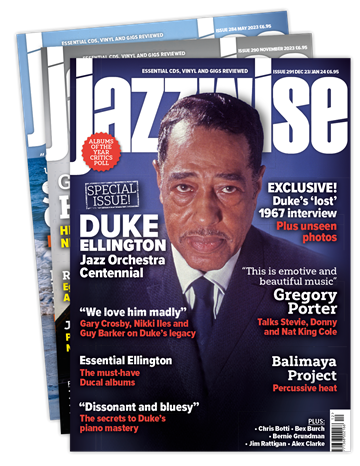Tyshawn Sorey: Verisimilitude
Editor's Choice
Author: Philip Clark
View record and artist detailsRecord and Artist Details
Musicians: |
Chris Tordini (b) |
Label: |
Pi Recordings |
Magazine Review Date: |
October/2017 |
Catalogue Number: |
P170 |
RecordDate: |
September 2016 |
It was John Cage who first identified Erik Satie's most significant contribution to the evolution of music – Satie was the first composer who actively structured his compositions around measures of time rather than harmony. The problem with harmony, Cage proposed, was that people ended up listening to the sound of music rather than the sound of sound, and for that reason he had no time for jazz – nor for the goal-orientated music of that German cat Ludwig van Beethoven – but I suspect Tyshawn Sorey's Verisimilitude might well have turned him. Sorey has replaced Anthony Braxton as Professor of Music at Wesleyan University and his music occupies a not dissimilar frame of reference, rooted equally in African-American theories of improvisation and experimental modern composition: Cage, Feldman and Xenakis in particular. The genius of Sorey's compositions – and five original pieces are documented here – is his uncanny ability to harness the energy of jazz-based improvisation while erasing any obvious stylistic hooks. The album opens with the freefalling ‘Cascade in Slow Motion’ which could, just about, pass for a distorted version of a jazz ballad, after which the music follows its own instincts exclusively. Following Chris Tordini's searching bass prologue, the second piece, ‘Flowers For Prashant’, turns out to be an extended unaccompanied solo by the ever-sensitive pianist Cory Smythe, who drizzles tiptoeing chords into the space without feeling the need to provide functioning connective tissue. Each piece segues into the next creating a monumental 80-minute flow and ‘Obsidian’ and ‘Algid November’ both meander with a purpose, slowly twisting around permutations of notes until hammered block chords on piano and a roaring tam-tam roll overwhelm the senses. There are no grooves or regular rhythmic cycles which might not sound like jazz to some, but two pieces were commissioned by George Wein – and what's good for George is good enough for me.

Jazzwise Full Club
- Latest print and digital issues
- Digital archive since 1997
- Download tracks from bonus compilation albums throughout the year
- Reviews Database access
From £9.08 / month
Subscribe
Jazzwise Digital Club
- Latest digital issues
- Digital archive since 1997
- Download tracks from bonus compilation albums during the year
- Reviews Database access

